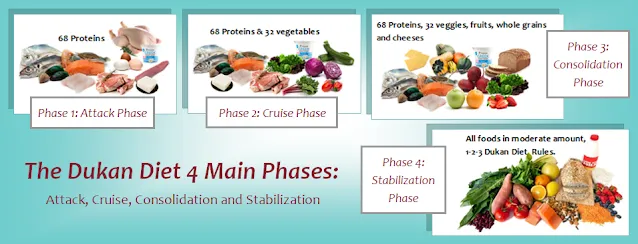In a context where thinness is constantly highlighted on social networks, many diets persist on the web. With promises more attractive than each other, these programs want to be THE solution that will allow you to get rid of overweight and accumulated fat, wrongly.
Here are the three plans that carry the most risk:
Water fasting
While fasting still has some health benefits, the risks it includes are considerable. Lack of nutrients can cause disruption in the functioning of the body's organs. If the fast lasts for several days, vitamin and mineral stores can run out. This pathological condition of the organism results in headaches, fatigue, and dizziness. Deprived of sugars, the liver uses glucose from muscle mass that loses volume. The heart, which is a vital muscle, can become very fragile. Cells that are not nourished can weaken.
In summary, fasting makes the body vulnerable to serious infections and diseases. Weight loss is only temporary. The body equates the fasting period with starvation. As soon as individuals resume a normal diet, even with careful monitoring of calories ingested, the body stores the nutrients it lacked during this fast. People who practice this diet regain the weight lost only a few days after resuming food.
The cabbage soup diet
This diet was developed in an American hospital to help obese people lose weight as quickly as possible before undergoing surgery. Based on a mainly plant-based diet, the diet advocates the consumption of cabbage soup at will. Other foods are allowed during the week but the diet remains low-calorie. It would seem that a day of this diet does not include more than 600 calories! Imbalances in vitamins and minerals are observed and can cause eating disorders as a result of dieting. This diet also promotes dehydration and significant muscle loss. In addition, cabbage soup can cause flatulence and stomach pain for those who suffer from intestinal fragility. Promising a loss of at least 3 kilos in a week, this diet also promotes a quick recovery of lost pounds and a few bonus pounds to reward the effort. Indeed, 90% of those who have done this diet have regained all the weight lost or more.The Dukan Diet
According to nutritionist Léa Zubiria, this high-protein diet causes significant nutrient deficiencies. The lack of essential trace elements leads to a weakening of body functions and an increased risk of developing various pathologies such as anemia or intestinal obstruction. In addition, the people who follow it have noticed fatigue, irritability, and slowing of intestinal transit during the diet.
Protein abuse leads to weakened kidney function and organ degradation. Obviously, this diet leads to inevitable weight gain. It can also cause unwanted sugar cravings and lead to eating disorders such as bulimia or anorexia.



